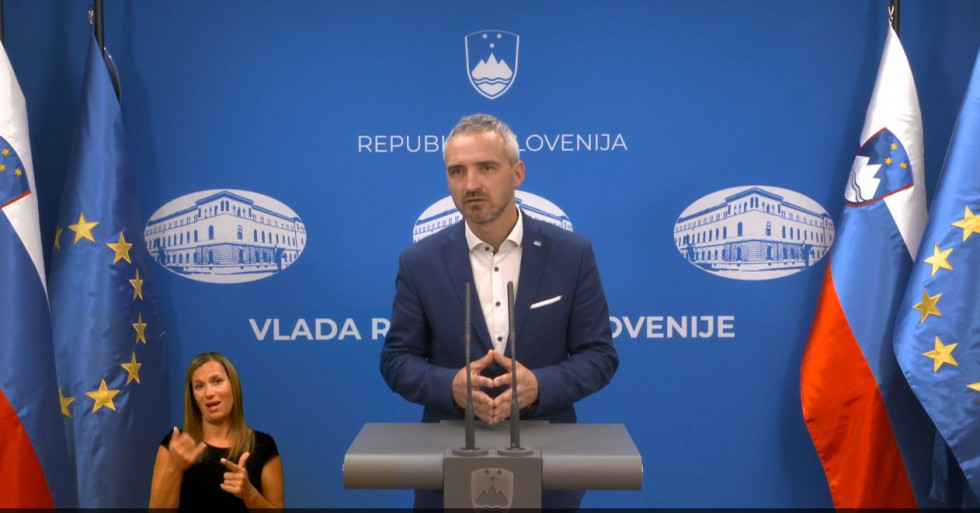The first positive signs of stabilisation of the situation at the Hrastnik Care Home
The number of confirmed COVID-19 infections in Slovenia has been above 20 for three days running; yesterday, 27 additional infections were confirmed and 935 tests were performed. A total of 24 infected persons are hospitalised, of whom two are in intensive care. As many as 29 residents and 10 employees at the Hrastnik Care Home are infected. Among the newly infected, six are over the age of 85.
Managing the situation at the Hrastnik Care Home is a multifaceted task. Minister Gantar supported the temporary transfer of 11 residents to hospitals. However, he pointed to the fact that low standards and failure to invest in care homes in the past 15 to 20 years have hindered measures taken by the state in the current crisis. Care homes do not have enough staff to even carry out their basic tasks, which is particularly evident in the case in question. In addition, the accommodation conditions in the care home are extremely poor. The National Institute of Public Health is examining the possibilities of stepping up measures at the level of municipalities and care homes; the situation is currently under control, and the minister hopes that, after the first positive signs, the situation is close to stabilising.
In the case of the Hrastnik Care Home, the two competent ministries found shortcomings in the care home’s management in general and in the assignment of work and tasks to medical staff; they found that preventive measures were not complied with; representatives of the two ministries visited the care home on the second and third day after the first case of infection was confirmed.
Minister Cigler Kralj called on all municipal residents to be especially careful when entering care homes and when planning visits. He also advised all employees in care homes to pay maximum attention to their health, since in almost all cases of infections in care homes to date, the virus was introduced to care homes by staff.
The Association of Social Institutions of Slovenia was called on to help by offering staff, but nothing happened. On the other hand, a number of care homes offered their staff, including the hospital in Trbovlje, which offered a doctor and a nurse.
The minister also outlined the decision by the Government to extend the measure of partial reimbursement of salary compensation for temporarily laid-off workers until 31 August 2020. There are still over 24,000 temporarily laid-off workers, and some industries have still not recovered or the recovery is not strong enough to allow for the full utilisation of staff. The sharp increase in unemployment slowed down after three months in June. Currently, there are 89,377 unemployed persons registered at the Employment Service of Slovenia.
The Government also adopted several other decisions on the basis of the epidemiological recommendations of the National Institute of Public Health.
At the proposal of the Ministry of Health, the Government extended the validity of the Ordinance on the mandatory wearing of protective masks or other forms of protection covering mouth and nose in closed public spaces and the mandatory disinfection of hands.
The Minister of the Interior proposed that the Government extend measures related to restrictions on gatherings by groups of different sizes. Up to 10 persons, no list is required; up to 50 persons, a list of persons present is required; up to 500 participants at public events, following the approval by the National Institute of Public Health.
The Government revoked the minimum trading hours of shops and lifted the ban on the operation of shops on Sundays and work-free days as defined by law; nightclubs and discotheques remain closed.


